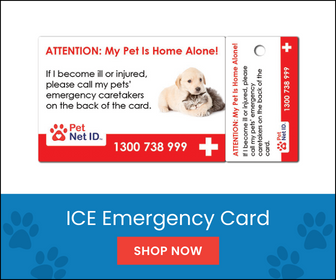
Irritation of the Mouth in Dogs – Related Illnesses
If your pet dog is experiencing with irritation of the mouth, there are numerous potential sickness that can cause irritation of the mouth in dogs.
Irritation of the Mouth in dogs can trigger visible changes in your canine’s physical health as well as behavior.
Understanding the irritation of the mouth in dogs is the first measure in defending your canine’s wellness.
We have provided some of the typical ailments in canines when they are enduring with irritation of the mouth. Please click the web links of diseases below for more information.
| Dog Illnesses & Health Conditions |
|---|
| Onion Poisoning in Dogs |

Identifying Signs And Symptoms Including Irritation of the Mouth in Dogs
Keep an eye on your canine’s day-to-day activity – Keep a journal of when your pet relieves himeself or herself, when his/her symptoms happen, when he eats and drinks, and more.
This helps to find a pattern to the symptoms. It can additionally be a really beneficial resource for the veterinarian to diagnose your dog’s health issues.
If your dog is mildly sick (not eating the best for a day, restless, vomiting one or two times, a round of diarrhea) you can closely observe your pet dog in the house and also phone your vet for recommendations.
Look for prompt veterinary attention with particular symptoms – There are a number of severe symptoms that require immediate medical attention. Never wait on these signs and symptoms and call your veterinarian right now:
- Known ingestion of a harmful compound.
- Unconsciousness.
- Unrelenting vomiting and diarrhea.
- Breathing troubles.
- Profuse bleeding.
- Seizures that do not stop within one min.
- New or recurring symptoms in a pet dog with a medical condition (diabetes, Addison’s disease, etc).
- Not able to urinate or not producing pee.
- Large swellings around the face, eyes or throat.
- Fractured bones.
Obtain recommendations from your vet on much less severe symptoms – Some signs and symptoms of health problem in dogs can be unpleasant for canine as well as may suggest conditions that need to be dealt with. Call your vet to obtain suggestions on treating the following symptoms:
- The occasional throwing up and looseness of the bowels lasting a lot longer than one day.
- Isolated seizure that can go on for no more than one minute.
- Sleepiness lasting a lot longer than eventually.
- High temperature.
- Swellings or bumps that suddenly show up or current ones that grow.
- Not eating for more than 1 day.
- Hopping or acting painful.
- Difficulty excreting.
- Excessive drinking.
- Swelling that comes on slowly.
- Any other weird signs and symptom or behavior (shuddering or whimpering).
Observe your fur baby’s temperament – A pet dog owner can learn a whole lot by watching the pet’s conduct including things like how he or she is actually feeling. You’ll need to see to it his health and wellness is slowly improving and answering treatment. For instance, your animal should begin to wag his tail, pay attention to you as well as stand up to greet you.
If he or she perks up as well as starts requesting food, then it is excellent signal to indicate he/she is recovering.
Instead, if you recognize your pet is turning into less interactive or just lying still, he or she may be becoming worse and need medical aid.
View your pet dog’s breathing – It is good to monitor the breathing pattern of your canine and it can reveal to you tell you a good deal about exactly how your dog feeling. If your dog is in pain or struggling with some kind health issues, he may breathe heavily or pant.
In most circumstances, coughing as well as heavy breathing are signs of a chest infection. You should additionally keep an eye on your family pet’s gums if his or her breathing triggers substantial chest movements.
The gums in your dog’ mouth must be pink and healthy. If the gum tissues look tinged blue or pale, contact the veterinarian. Your pet may not be getting enough oxygen and could be in respiratory distress.
You can also keep an hourly record of your dog’s breathing. Usually your pet dog take around 20 to 30 breaths per min. If your dog’s breathing rate surges steadily, his or her condition has actually deteriorated and you need to get in touch with the veterinarian.





